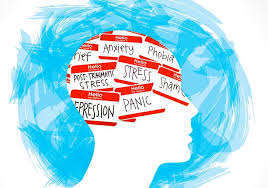India is facing a growing mental health crisis, with millions of people affected by various mental health disorders. Despite the prevalence of these conditions, there remains a significant stigma surrounding mental illness, hindering access to treatment and support services. However, efforts are underway to break the silence surrounding mental health and address the crisis through innovation and awareness initiatives.
The Scope of India’s Mental Health Crisis:
India is home to one of the largest populations in the world, and the burden of mental health disorders is significant. Depression, anxiety, schizophrenia, and substance abuse are among the most common mental health conditions affecting people across all age groups. Additionally, the COVID-19 pandemic has exacerbated mental health challenges, leading to increased stress, isolation, and economic uncertainty.
Breaking the Stigma:
Stigma and discrimination remain significant barriers to mental health care in India. Many people hesitate to seek help due to fear of judgment or social ostracism. However, efforts are underway to break the stigma surrounding mental illness and promote acceptance and understanding. Awareness campaigns, advocacy efforts, and community outreach programs are helping to challenge misconceptions and promote mental health literacy.
Innovative Solutions:
Innovative approaches are needed to address the complex challenges of India’s mental health crisis. Technology plays a crucial role in expanding access to mental health services, particularly in remote and underserved areas. Telemedicine platforms, mobile apps, and online counseling services are providing convenient and confidential support to individuals in need. Additionally, digital tools for self-care and mental wellness are empowering people to manage their mental health proactively.
Community Engagement:
Community-based interventions are essential for promoting mental health awareness and support. Peer support groups, helplines, and community mental health centers offer valuable resources for individuals experiencing mental health challenges. These initiatives provide a safe and supportive environment where people can share their experiences, seek advice, and access information about available services.
Policy and Advocacy:
Policy reforms and advocacy efforts are crucial for improving mental health care in India. Government initiatives to integrate mental health services into primary care settings, train healthcare providers, and implement mental health legislation are steps in the right direction. However, sustained investment and commitment are needed to address the systemic challenges and inequalities in mental health care delivery.
Conclusion:
India’s mental health crisis requires a multi-faceted approach involving innovation, awareness, community engagement, and policy reform. By breaking the silence surrounding mental illness, promoting acceptance and understanding, and expanding access to quality mental health care, India can make significant strides in improving the well-being of its population. It is imperative that stakeholders across sectors work together to prioritize mental health and ensure that all individuals have access to the support and services they need.
Source- health.economictimes.indiatimes



